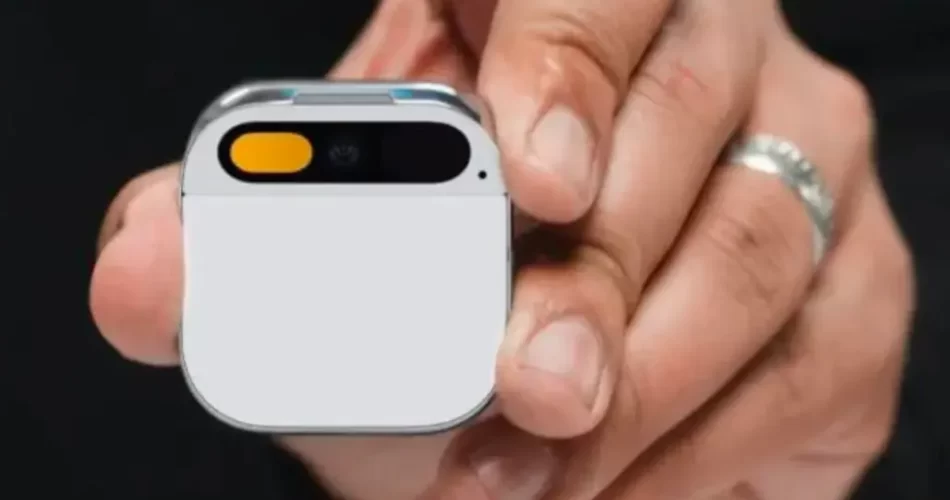“In the next five years, you won’t need to use different apps for different tasks. You’ll simply tell your device what you want to do,” wrote Bill Gates about the impact of AI on devices
Controversy Erupts Over $700 Price Tag and Unique Features
Last week, Humane unveiled an AI Pin that you can wear “stuck” to your chest. The reaction to a device with no screen, no apps and a cost of $700, plus an additional $24/month, was not pleasant. Many comments since then have been negative and even derogatory.
The device is an attempt to bring computing into the human experience. With a 13 MP camera, GPS, cellular connection, accelerometer, light sensor, microphone, speaker, mini-projector for visual communication and magnetic battery, the real draw is ubiquitous AI assistance via ChatGPT in your life, without putting a pane of glass – or an XR headset like the Apple Vision Pro – between you and real life.
At the very least, the gadget is interesting. When fully exploited, it could really mean a new way of integrating computing into our lives.
Bill Gates Envisions AI Revolutionizing Device Interaction in the Next Five Years
Microsoft founder Bill Gates recently spoke about the impact of AI on our devices through one of his less official means of communication: his Reddit account. One of the things he said was that apps are going to die.
“To perform any task on a computer, you need to tell your device which app to use. You can use Microsoft Word and Google Docs to write a business proposal, but they can’t help you send an email, share a selfie, analyze data, schedule a party or buy movie tickets,” Gates wrote. “In the next five years, that will change completely. You won’t need to use different apps for different tasks. You’ll simply tell your device, in everyday language, what you want to do.”
AI is the interface – which is an interesting idea. Apps are an interface for performing a task, but the best interface is simply performing the action requested.
Smartphones have been the most disruptive and powerful way of bringing computing power to aspects of everyday life. But the interface they have been given – the glass panel, the grid of apps – has guided this evolution as much as it has enabled it.
AI Pin is likely to have committed a fatal flaw: the price. The device costs as much as a smartphone, while offering significantly less functionality – for now. Like a computer – even if it’s in your hand – a smartphone is a general-purpose machine. Humane’s AI Pin is also a computer, but its possibilities of use are limited.
Ars Technica calls the AI Pin “a bizarre cross between Google Glass and a pager with a creepy camera in your face”. Business Insider says it’s “weird” and can’t replace your phone. “If you’re wearing the Humane AI brooch and the Meta Raybans and touch both at the same time, a screenshot of your life will be taken and uploaded to the cloud,” joked a jokester on Threads.
None of this is to say that AI Pin is useless or bad. In fact, for the use cases that the Humane team identified – getting less caught up in our smartphones and participating more in real life – the simplifications of AI Pin could even be positive.

